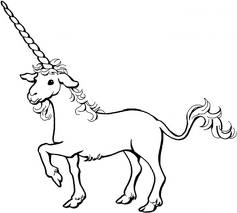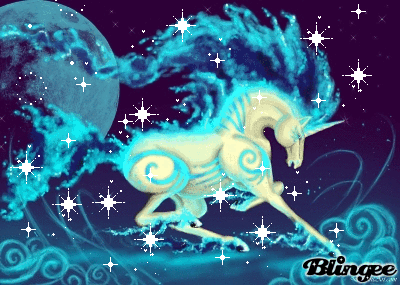Unicorns, and one physician’s experience as a patient May 6, 2013
Posted by therealtinlizzy in future physician.Tags: doctor as patient, medical school, unicorns
trackback
My semester at the U is wrapping up this week and next with a final paper due for the Future Physician course on Thursday and final exam for Microbiology next week (in which I’m currently one of the top few students in class – no humble-brag that, am totally owning that I’m damned pleased with self!). Happily the final paper is only a 3-pager (though it’s one of the those weave-together-all-the-things-from-the-semester-into-a-cohesive-narrative-with-this-specific-focus type of papers that’s taking some noodling to compose), and the final Micro exam is just over material covered in this last section, not cumulative except insofar as the last section builds on everything from earlier sections.
While it will be nice to have the get-to-class and get-class-shit-done pressure off for the moment, May will continue to be packed through to the end of the month with getting my med school application updated and ready to submit again June 1st with a year’s worth of added work/life experience, volunteer activs and course work, as well as finishing a complete redo of my personal essay (one’s med school app needs a neon disco-ball unicorn of a personal statement in order to leap out from the pile of 4000 or so other perfectly nice unicorns) to transform it from
into
Yep – I just Blingeed a unicorn and dropped it here. Boom. (credit for the unbligeed unicorn)
I’ll not be sad panda to have to write an essay nearly every week, but I will miss the Future Physician course as a context for strong-arming, er motivating and providing context for me to write weekly. The FP class has actually been a really useful means for me to construct a new and more relevant (and hopefully more disco shiny) narrative for my personal statement, in addition to expanding my knowledge of different specialties and providing lots of fodder for personal reflection and understanding myself even better.
In the interest of my endeavouring to keep up on the journaling kick for my own sake, I’m going to post one of my essays written for the FP class a few weeks ago where we had the opportunity to hear from a physician, Dr. Macaran Baird, who shared his story of being a patient over this past year. The essay generally (not being exactly specific so as to protect the integrity of the course coordinators’ specifics of the assignment) was to include reflection on aspects of Dr. Baird’s narrative relevant to us as future physicians. It’s prob not the most interesting of reads for a general audience, but that’s alright – it can’t always be unicorns and Iron Man. I will say Dr. Baird’s story itself was something worthwhile for any old anyone to hear, regardless of one’s interest, or lack thereof, in medicine. So, my thoughts on Dr. Baird:
One of the loveliest things about listening to Dr. Baird’s narrative (and there were many) was the humanity, humility and gentleness that flowed from him. I have not had the pleasure of meeting Dr. Baird prior to our class last week, but it seems that Dr. Baird’s experience isn’t a case of a physician whose core personality or approach to life or medical practice experienced radical transformation by gazing into the chasm of his mortality. Rather it seems Dr. Baird’s character and life experiences instead sculpted what sounded to me like a very graceful manner in which he traversed the ordeal of experiencing, being treated for and surviving [his illness]. In addition to the simple privilege it was to listen to Dr. Baird’s narrative, there were a number of notions he addressed that I found relevant to me as a future physician.
Dr. Baird described coming fairly quickly to relative peace with his [] diagnosis, the prospect of arduous and unpleasant treatment, and coping with the prospect that he may not survive either the treatment or the disease. However, he spoke of his wife having a more difficult time with all of it, that she experienced much more anger, frustration and a sense of it not being fair. He was sensitive to the fact that everyone experiences trauma and loss (or the prospect of loss) in very different ways, and that just because he had come to a sense of peace about his condition and prospects, he needed to afford his wife and others in his life the respect of each processing the situation in their own individual fashion. I believe this is a concept that physicians must learn to be mindful of and extend to their patients and patients’ families; every person comes with their own unique ways of experiencing, expressing and coping with negative health prognoses and loss. Granting patients emotional and psychological space to experience and cope with loss and health difficulties is something I intend to work hard at as a physician.
Another bit of wisdom Dr. Baird imparted that I feel is relevant to me as a future physician is being able to graciously rely on others’ skills and abilities. Dr. Baird seems to have already had a strong sense of trust and reliance on the other healthcare professionals with whom he works long before having to let other nurses, physicians and health care professionals take care of him as a patient. However, Dr. Baird spoke of having to fight his own stubbornness as a patient and to learn to take the nurses’ recommendations for his daily care, nutrition and physical fitness. So while he seems to have had a good foundation for trust in those providing daily patient care, he seems to have learned an even greater appreciation and trust for those like nurses who are so foundational to daily patient care, and the way he spoke of his experience led me to believe he was very gracious to those who took such care of him. A concept that has emerged repeatedly in these Future Physician presentations has been physicians’ trust of, reliance on and cooperation with other health care support staff. I’m certain there are many exceptions to attitude and sense of cross-disciplinary collaboration in the ranks of physicians out there, but it’s been incredibly encouraging for me given my notions of the importance of trust, collaboration and team work across a range of abilities that there are and will continue to be many similarly-minded physicians out there.
A third element of practice Dr. Baird spoke of that I feel is particularly relevant to my future as a physician is that “doctors lose a little part of themselves when patients die.” When I began pursuit of medical school, I expected to learn from and be mentored by physicians who were pros at keeping a cool, clinical detached distance from patients or about their patients’ experiences. I can’t say exactly where that expectation stemmed from, perhaps from a lack of strong personal acquaintance with any physicians in my life until more recently, as well as never having traversed any particularly fraught or traumatic medical or health concerns. However, what I found in Dr. Baird’s narrative of being a physician, as well as in the accounts of the other physicians who’ve shared their experiences with our class, is anything but clinical detachment.
These are physicians so passionate about their practice and invested in their patients that the emotion has often been palpable – running in tears down their faces, catching in their voices. That’s not to say that I’ve gotten any impression that these are physicians without emotional or professional boundaries between themselves and their patients; to the contrary, nearly every one of these physicians has spoken of having to balance the emotional attachment and investment they feel for their patients. But what I found particularly encouraging about Dr. Baird’s narrative about his experience as a physician, is the lack of fear about the emotion and care he (or any of the physicians who have presented) invests in his patients; there’s an understanding, acceptance, and embracing of the loss and pain physicians experience when patients die. What I take for my future as a physician is that while there’s a need to impose boundaries and take care of myself emotionally and psychologically, to not lose myself to patient need and loss, I can be my genuine self in truly and openly caring and emotionally investing in my patients.
I expected Dr. Baird’s narrative to be along the lines of “let me tell you how being a patient with an acute life-threatening condition transformed how I practice and how I look at my patients,” but that wasn’t at all the story he told. What so much inspired and moved me overall about Dr. Baird’s story is that while being on the receiving end of such substantial and all-encompassing medical procedures and day-to-day health care was both a new experience for him and led him to discover what he characterized as a new “syndrome” of being immensely and overwhelmingly grateful for the privilege of his life, Dr. Baird clearly got on the path long ago that led him to develop into a passionate, intuitive, deeply compassionate and empathetic human being and physician.


Wonderful essay. And wow, if your personal essay fro med school is as eye-popping as that unicorn, you are a shoe-in! Fingers crossed! Oh, and congrats on doing so well in microbiology!
Thank you dear, and yes – my fingers are crossed too!